Resources

Journal Issue.
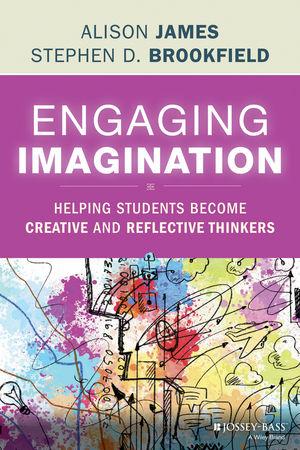
Click Here for Book Review Abstract: How to nurture creativity in tomorrow’s innovators—today’s college students When asked what they want colleges to emphasize most, employers didn’t put science, computing, math, or business management first. According to AAC&U’s 2013 employer survey, 95% of employers give hiring preference to college graduates with skills that will enable them to contribute to innovation in the workplace. In Engaging Imagination: Helping Students Become Creative and Reflective Thinkers, two leading educators help college instructors across disciplines engage students in nurturing creativity and innovation for success beyond the classroom. Alison James, an expert in creative arts education, and Stephen D. Brookfield, bestselling author, outline how creative exploration can extend students’ reflective capabilities in a purposeful way, help them understand their own potential and learning more clearly, and imbue students with the freedom to generate and explore new questions. This book: • shows why building creative skills pays dividends in the classroom and in students’ professional lives long after graduation; • offers research-based, classroom-tested approaches to cultivating creativity and innovation in the college setting; • provides practical tools for incorporating “play” into the college curriculum; • draws on recent advances in the corporate sector where creative approaches have been adopted to reinvigorate thinking and problem-solving processes; and • includes examples from a variety of disciplines and settings. Engaging Imagination is for college and university faculty who need to prepare students for the real challenges of tomorrow’s workplace. (From the Publisher)
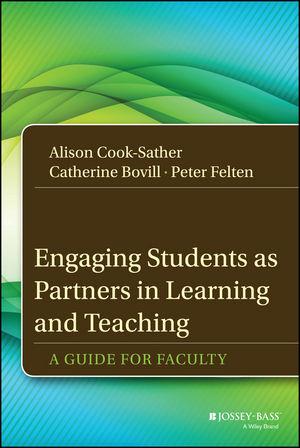
A guide to developing productive student-faculty partnerships in higher education Student-faculty partnerships is an innovation that is gaining traction on campuses across the country. There are few established models in this new endeavor, however. Engaging Students as Partners in Learning and Teaching: A Guide for Faculty offers administrators, faculty, and students both the theoretical grounding and practical guidelines needed to develop student-faculty partnerships that affirm and improve teaching and learning in higher education. • Provides theory and evidence to support new efforts in student-faculty partnerships • Describes various models for creating and supporting such partnerships • Helps faculty overcome some of the perceived barriers to student-faculty partnerships • Suggests a range of possible levels of partnership that might be appropriate in different circumstances • Includes helpful responses to a range of questions as well as advice from faculty, students, and administrators who have hands-on experience with partnership programs Balancing theory, step-by-step guidelines, expert advice, and practitioner experience, this book is a comprehensive why- and how-to handbook for developing a successful student-faculty partnership program. (From the Publisher)
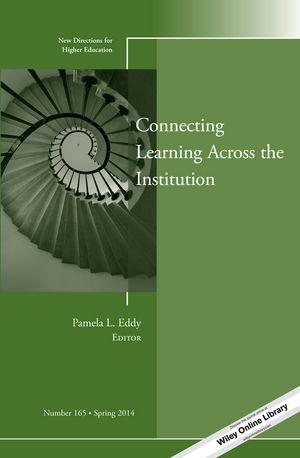
Click Here for Book Review Abstract: Most research on learning tends to occur in silos based on stakeholder perspective. This volume seeks to break down these silos and draw together scholars who research learning from different perspectives to highlight commonalities in learning for students, faculty, and institutions. When we understand how learning is experienced across the institution, we can develop strategies that help support, enhance, and reinforce learning for all. Exploring what it means to bridge learning across the institution, this volume provides a roadmap to improve learning for all. Both scholarly and practical, it advances the knowledge about the ways we investigate and study learning across and for various groups of learners. 

It also: • Collects thinking about learning in its various formats in one location • Provides a platform for synthesis • Outlines key questions for thinking more deeply about learning on campus. Instead of thinking of learning as discrete depending on the stakeholder group, this  volume highlights the commonalities across all types of learners. (From the Publisher)
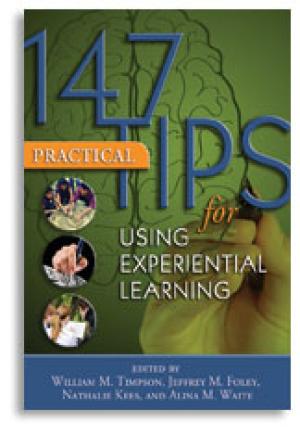
The latest addition to our continuing 147 Tips series, 147 Practical Tips for Using Experiential Learning, explores the many options and strategies available in the exciting world of experiential learning. Editors Timpson, Foley, Kees, and Waite have gathered a myriad of practical and insightful tips and brought them together in a delightful and easy-to-use guide that illuminates a pivotal and rewarding subject. In this book you’ll discover valuable tips on topics including: Learning outside the classroom
Exploring alternative approaches
Tapping into the creative arts
Addressing diversity issues
Developing leadership skills Whether you are a new teacher starting out on the experiential learning journey for the first time, or a veteran educator looking to revitalize your practice for the next leg of the road, this volume will provide you with priceless pointers and examples. (From the Publisher)
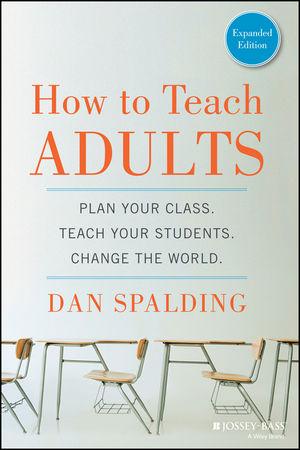
Your hands-on guide to teaching adults. . . no matter what the subject In this expanded edition of How to Teach Adults, Dan Spalding offers practical teaching and classroom management suggestions that are designed for anyone who works with adult learners, particularly new faculty, adjuncts, those in community colleges, ESL teachers, and graduate students. This reader-friendly resource covers all phases of the teaching process from planning what to teach, to managing a classroom, to growing as a professional in the field. How to Teach Adults can guide new instructors who are trying to get up to speed on their own or can help teacher trainers cover what their students need to know before they get in front of a class. It is filled with down-to-earth tips and checklists on such topics as connecting with adult students, facilitating discussions, and writing tests, plus everything you need to remember to put into your syllabus and how to choose the right textbook. Dan Spalding reveals what it takes to teach all students the skills they need to learn, no matter what the topic or subject matter. Full of vivid examples from real-world classrooms, this edition: Shows how to get started and tips for designing your course Includes information for creating a solid lesson plan Gives suggestions for developing your teacher persona How to Teach Adults offers the framework, ideas, and tools needed to conduct your class or workshop with confidence. (From the Publisher)
An Auburn Studies report on a study of 24 “top supplier” doctoral programs in theology and religion—those that send the most graduates to teach in seminaries and divinity schools. The report raises questions about the practices of programs and the employment prospects of graduates.

Students usually begin their path to theological or rabbinical school long before they first appear on the radar of most schools. They have been nurtured along the way by parents and professors, churches and clergy, and their interest in ministry often begins at an early age. Recruiting the best students for the future will require long-term strategies and major investment on the part of the seminaries, denominations, and religious communities. Theological Student Enrollment: A Special Report from the Auburn Center for Study of Theological Education is a companion piece to this report. (From the Publisher)
A series of invited blog posts by Wabash Center program participants, reflecting back on earlier moments in their teaching careers, what they learned, and what they wish they had known.
Twelve invited blog postings by faculty who have been involved in Wabash Center programs, reflecting on their experiences with various active learning classroom teaching strategies.